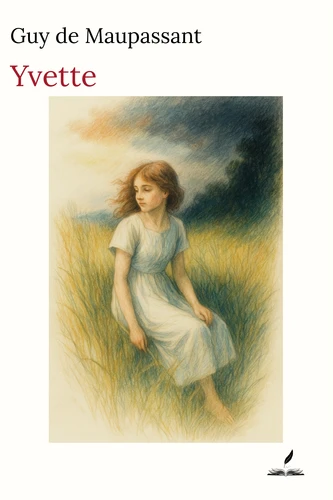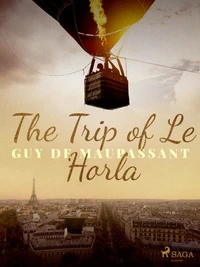Dans les salons brillants et décadents de la marquise Obardi, la jeunesse dorée s'abandonne aux plaisirs faciles et aux jeux de pouvoir. Parmi les bijoux et les regards en coin, une jeune femme intrigue, détonne, éblouit : Yvette, dix-huit ans, beauté vive et insaisissable. Fille de courtisane, elle évolue dans ce théâtre mondain avec une liberté désarmante, entre naïveté apparente et provocation calculée.
Jean de Servigny, viveur désabusé, croit d'abord jouer avec elle.
Mais plus il la fréquente, plus le doute s'installe : ingénue ou manipulatrice ? Victime ou stratège ? Et si aimer Yvette, c'était regarder en face tout ce que la société refuse d'admettre sur le destin des femmes ?
Avec une plume acérée, Guy de Maupassant signe ici un roman troublant et d'une modernité dérangeante, où se heurtent le désir, la morale et l'hypocrisie sociale.
Guy de Maupassant est l'un des maîtres incontestés du réalisme et de la nouvelle française.
En une décennie, il a marqué la littérature par son regard acéré sur la société, son style limpide et son humour noir.
Dans les salons brillants et décadents de la marquise Obardi, la jeunesse dorée s'abandonne aux plaisirs faciles et aux jeux de pouvoir. Parmi les bijoux et les regards en coin, une jeune femme intrigue, détonne, éblouit : Yvette, dix-huit ans, beauté vive et insaisissable. Fille de courtisane, elle évolue dans ce théâtre mondain avec une liberté désarmante, entre naïveté apparente et provocation calculée.
Jean de Servigny, viveur désabusé, croit d'abord jouer avec elle.
Mais plus il la fréquente, plus le doute s'installe : ingénue ou manipulatrice ? Victime ou stratège ? Et si aimer Yvette, c'était regarder en face tout ce que la société refuse d'admettre sur le destin des femmes ?
Avec une plume acérée, Guy de Maupassant signe ici un roman troublant et d'une modernité dérangeante, où se heurtent le désir, la morale et l'hypocrisie sociale.
Guy de Maupassant est l'un des maîtres incontestés du réalisme et de la nouvelle française.
En une décennie, il a marqué la littérature par son regard acéré sur la société, son style limpide et son humour noir.





















